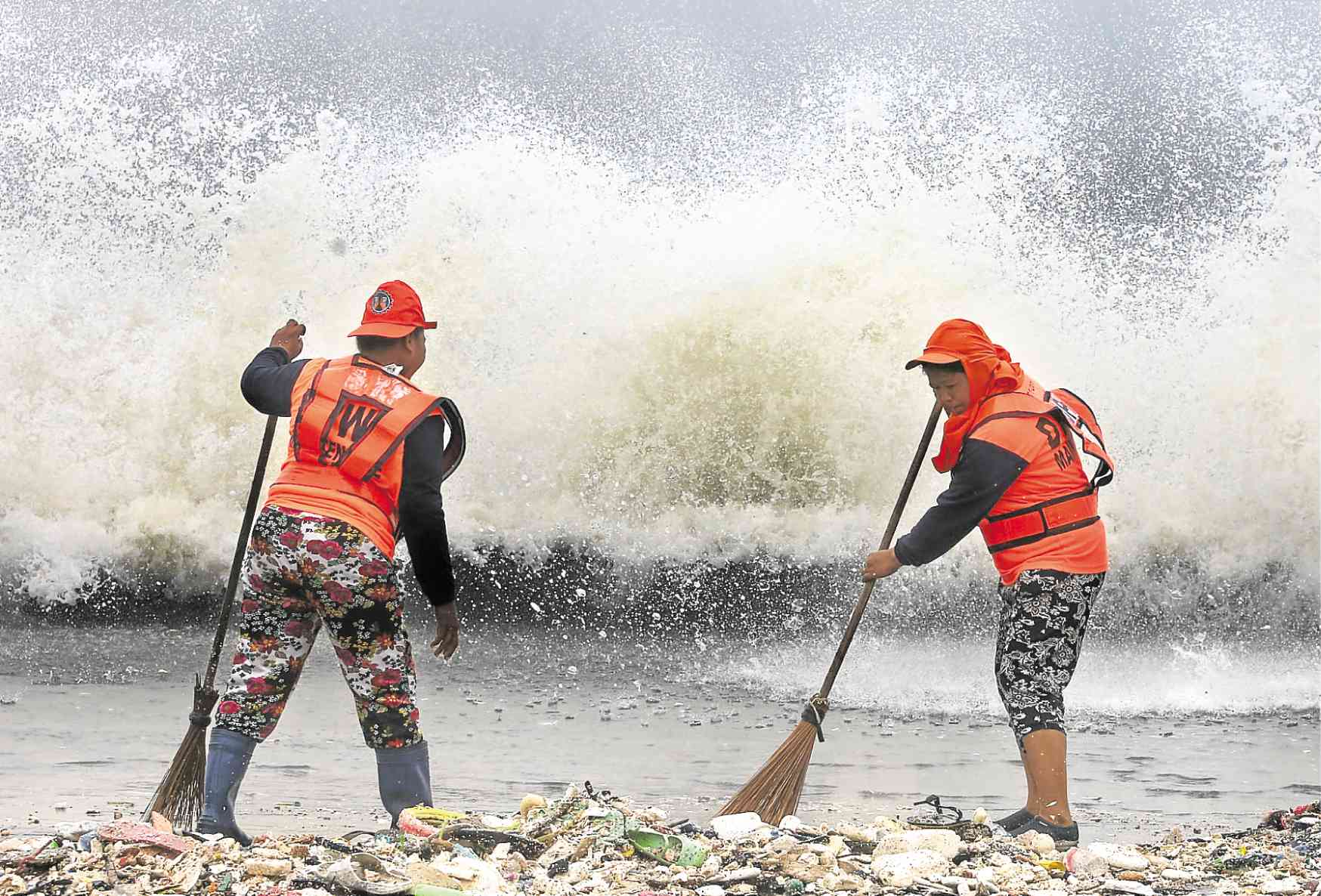Velasco: ‘Time is ripe’ for gradual phase out of single-use plastic in PH

SEA RETURNS TRASH Workers from the Department of Public Works and Highways sweep garbage washed ashore from Manila Bay onto Roxas Boulevard in Manila. Monsoon rains on Sunday induced flooding and brought tons of trash, mostly plastic, from the bay. —MARIANNE BERMUDEZ
MANILA, Philippines — As one of the top contributors of plastic wastes, the “time is ripe” for the Philippines to enact measures seeking to gradually phase out the production and use of single-use plastic in the country, House Speaker Lord Allan Velasco said Thursday.
Velasco made the remark after the House of Representatives approved on final reading House Bill No. 9147 or the “Single-Use Plastic Products Regulation Act.”
“The Philippines is one of the world’s top five countries that contribute to plastic wastes causing marine pollution. Thus, it behooves our country to start prohibiting the use and spread of plastics in order to preserve the environment for future generations,” Velasco, who is one of the principal authors of the measure, said in a statement.
House Bill No. 9147 provides for the gradual phase-out of single-use plastic, which refers to “plastic products designed to be disposed of, destroyed, or recycled, after only one use.”
Under the bill, the following noncompostable single-use products will be phased out within four years from the time the measure takes effect:
Article continues after this advertisement- plates and saucers
- cups, bowls, and lids
- cutlery such as spoons, forks, knives, and chopsticks
- food and beverage containers made of expanded polystyrene
- oxo-degradable plastics
- film wrap, packaging, or bags of less than 50 microns in thickness
- sachets and pouches that are multilayered with other materials
Meanwhile, the following products will be phased out within a year from the time the measure takes effect:
Article continues after this advertisement- drinking straws
- stirrers
- sticks for candies, balloons, and cotton buds
- buntings
- confetti
- packaging or bags of less than 10 microns in thickness
“Thereafter, the production, importation, sale, distribution, provision or use of the said plastic products shall be prohibited,” the measure states.
“Properly labeled flexible disposable plastic drinking straws for persons with special medical conditions shall be allowed, when no suitable reusable or compostable alternatives are available,” it adds.